Advocating for the World’s Untouchables”: Lessons Learned from India

Read full article with citations and links at LinkedIn: https://www.linkedin.com/pulse/advocating-worlds-untouchables-lessons-learned-from-india-menah-pratt-xrcwe/
Excerpts below:
I have returned from visiting India for a week. As part of the American Council of Education Fellowship, I am exploring leadership from a national and international lens, with a particular sensitivity to the experiences of women in education.
From Ethiopia, to Benin, to Senegal, I am learning lessons.
During the week, I was hosted at three all-women’s colleges that are part of the University of New Delhi: Miranda House, Jesus and Mary College, and Lady Shri Ram College. I was also hosted by a private university, Shiv Nadar University. At each institution, I was able to meet with faculty and students, and also deliver a guest lecture. I met incredible and powerful professors and students in India. There is amazing work happening at women’s colleges, training a new generation of fearless women leaders.
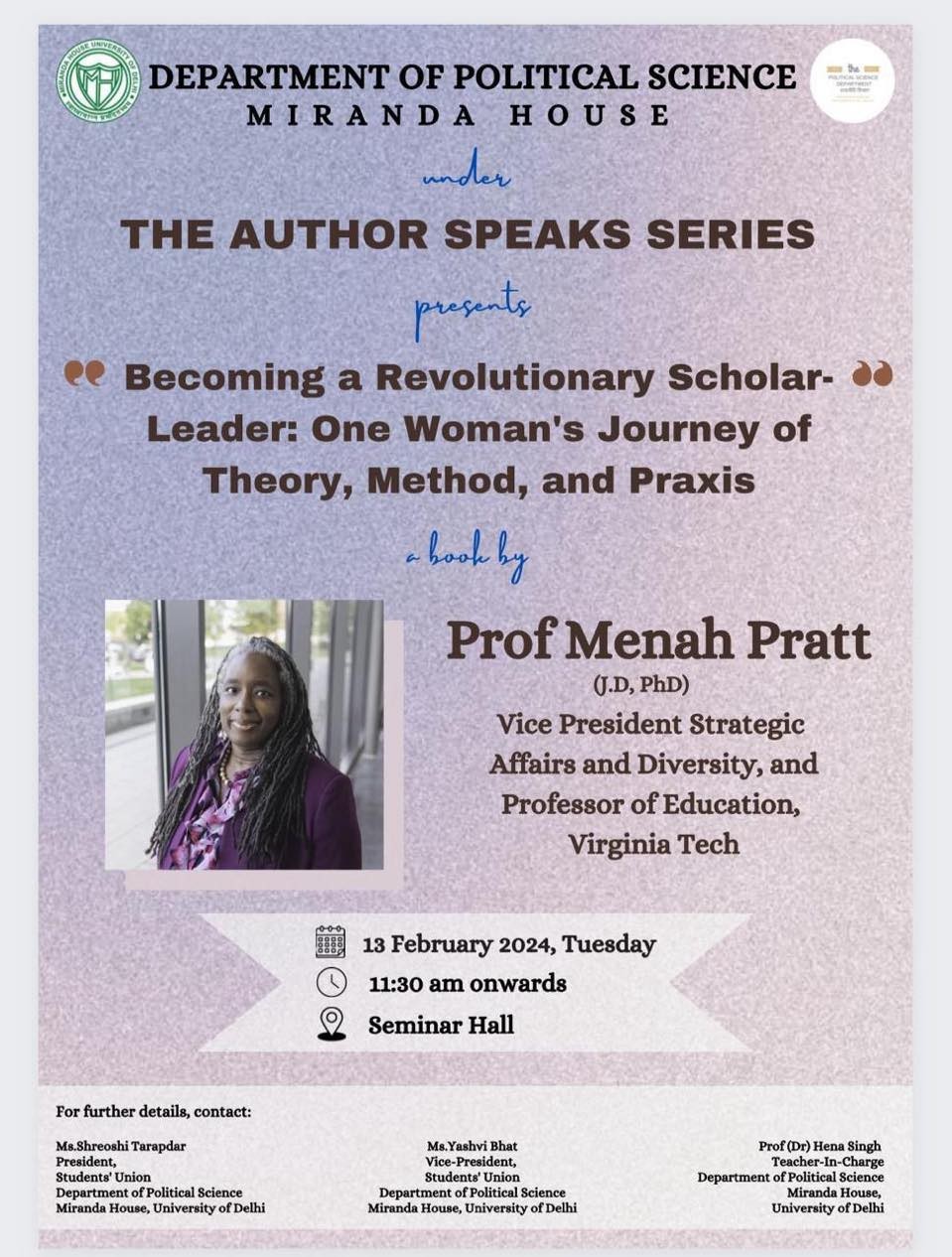
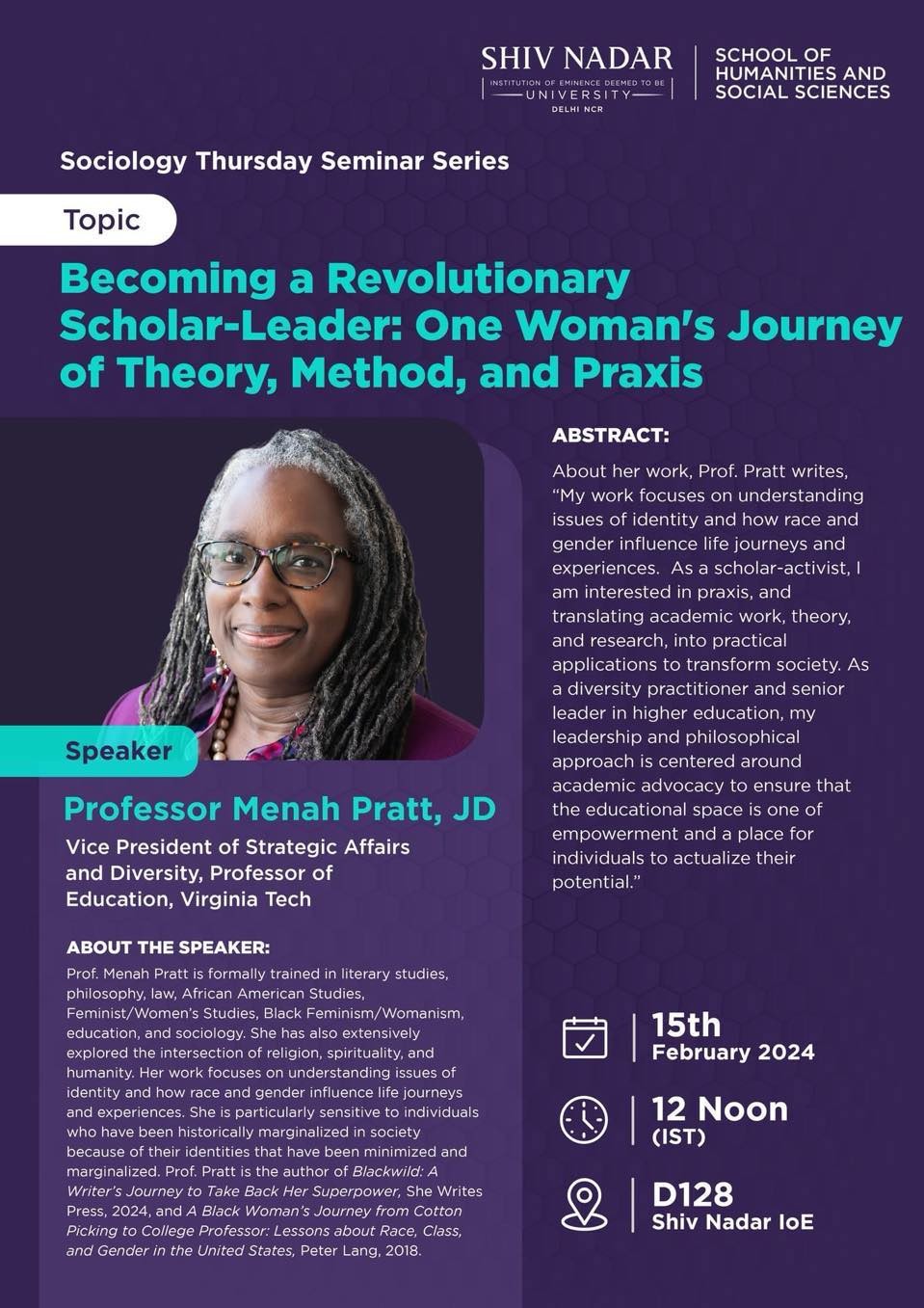
At each institution, I spoke about the power of woman’s voice, sharing my journey and my mother’s journey as Black women full professors in higher education. My visit had a profound impact on me. In this post, I’m going to try to draw connections and take aways between my time in India, and the film,Origin. Ultimately, my take away is this: We must do better as humanity, so that no one is untouchable and unlovable.
I was privileged to watch the film Origin, based on Isabel Wilkerson’s book, Caste, about a week before my trip. Due to the challenges of production, it was not broadly released. It was not in my town of Blacksburg, so I watched it during my fellowship visit to Minneapolis. Some images that stood out from the film were the mages from Nazi Germany, the caste discussion in India, the racism of the United States, the murder of Trayvon Martin, book bans and book burnings, and the personal grief journey of Isabel Wilkerson, losing her husband and her mother in 2015 and 2016.
It was as if the book came to life for me while I was in India and I have been trying to connect the dots.
Let me start with a few short stories and images:
Story #1: This was a story told to me in India. A little boy in India recently went to school. He thought he was like all the other little children in class. When he walked into the room and sat in his seat, the teacher approached him. He was told he was an “untouchable” and he would have to sit outside the classroom in the hallway.
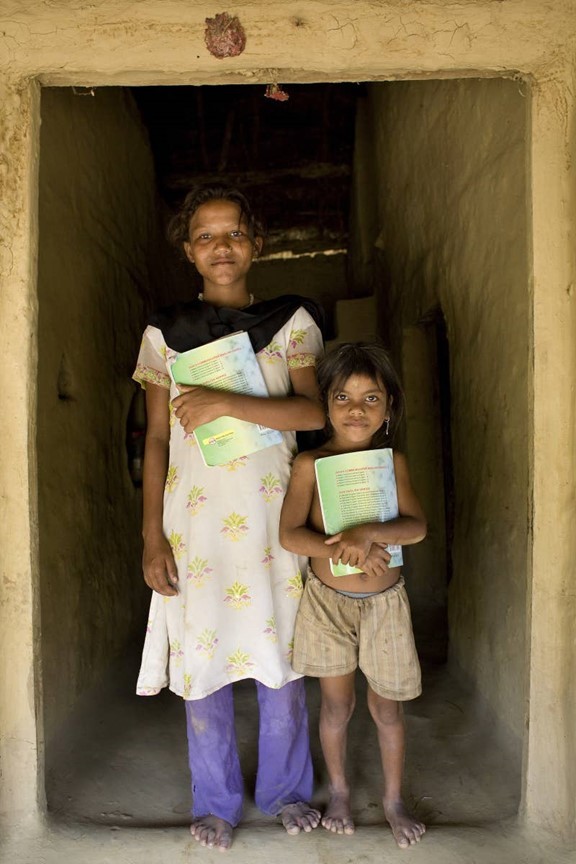
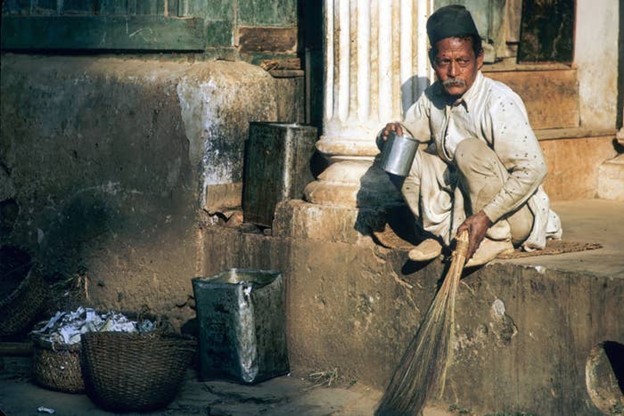
“Untouchability is commonly upheld through a prohibition on sharing of water and cooked food. During a morning break at Pharping Boarding School, everyone was served tea in ceramic tea cups, except for this sweeper, who, because of his caste, was given his tea in an empty tin can.”
Story #3: Shared with me during my time in India: An Indian woman gets married. She is required to fast for 24 hours, alone in a hotel room. Her family is not present at all during the two day ceremony. At the wedding over two days, she sits alone, with her head bowed, unable to speak and unable to make eye-contact with anyone, “as a sign of respect for her new husband’s family.” The husband and his family dance, celebrate, and enjoy two days of festivities, largely paid for by the bride’s family, a dowry. Very often the woman/the bride is seen as property, not human – an “untouchable.”
Story #4: From the film, Origin: In 1951, as a Black child named Al Bright is forbidden from joining his Little League teammates celebrating a championship with a pool party. From behind a chain-link fence and atop a picnic blanket, he watches until authorities relent and allow him in under one condition: No white people can be in the pool and Al cannot touch the water. While Al lies completely still on a raft, a lifeguard pulls him around the perimeter of the pool. The white families are gathered around, watching and silent. As the lifeguard pulls him around the pool, he said that he looked into the face of each of his former teammates, Al Bight said: ‘I didn’t scowl at them. I didn’t say anything to them. I just looked into their eyes. And that was enough said. They knew they had done something wrong.’
He was treated as “untouchable.” He could not touch the water.
Images from https://www.instagram.com/originmovie/
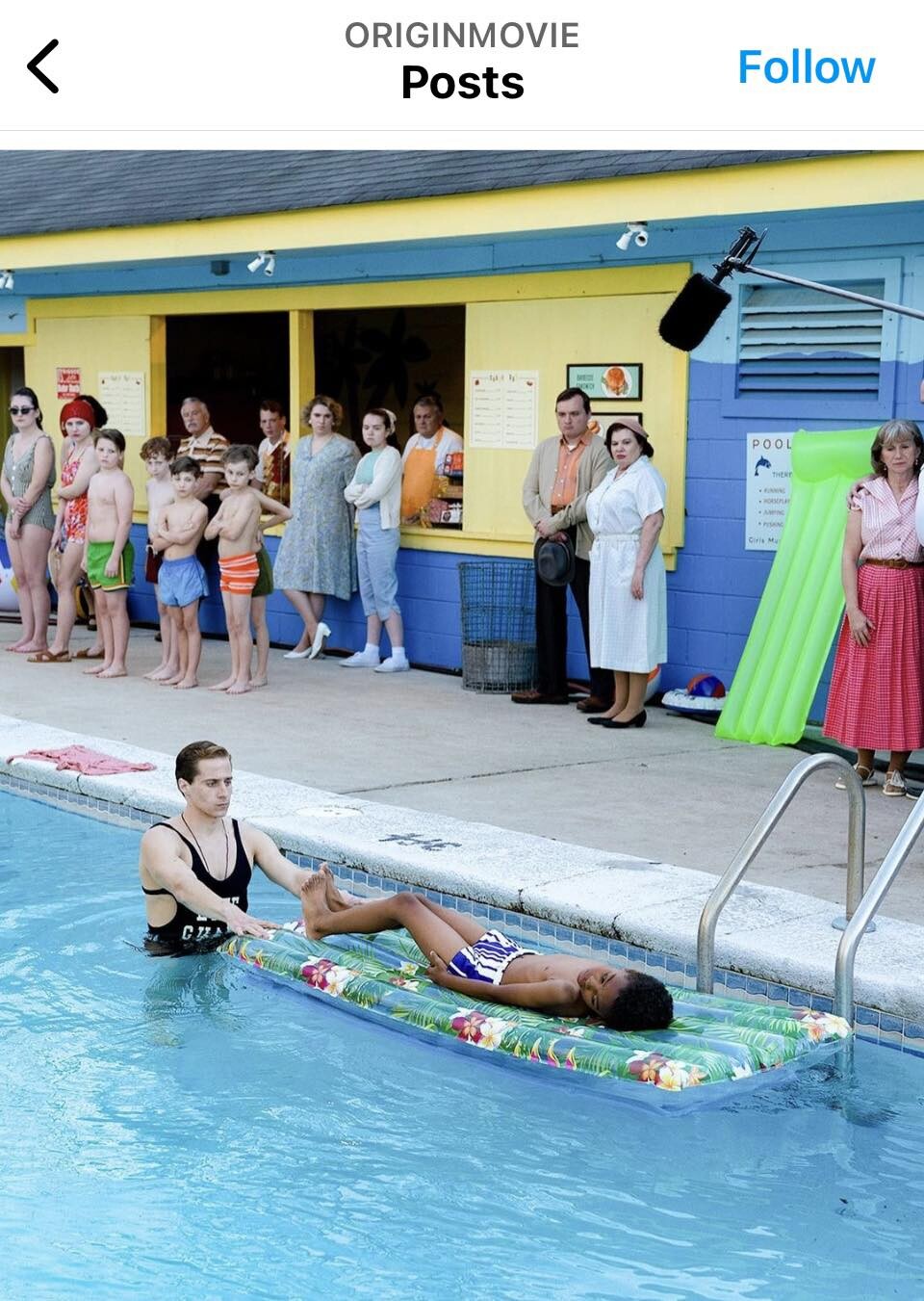
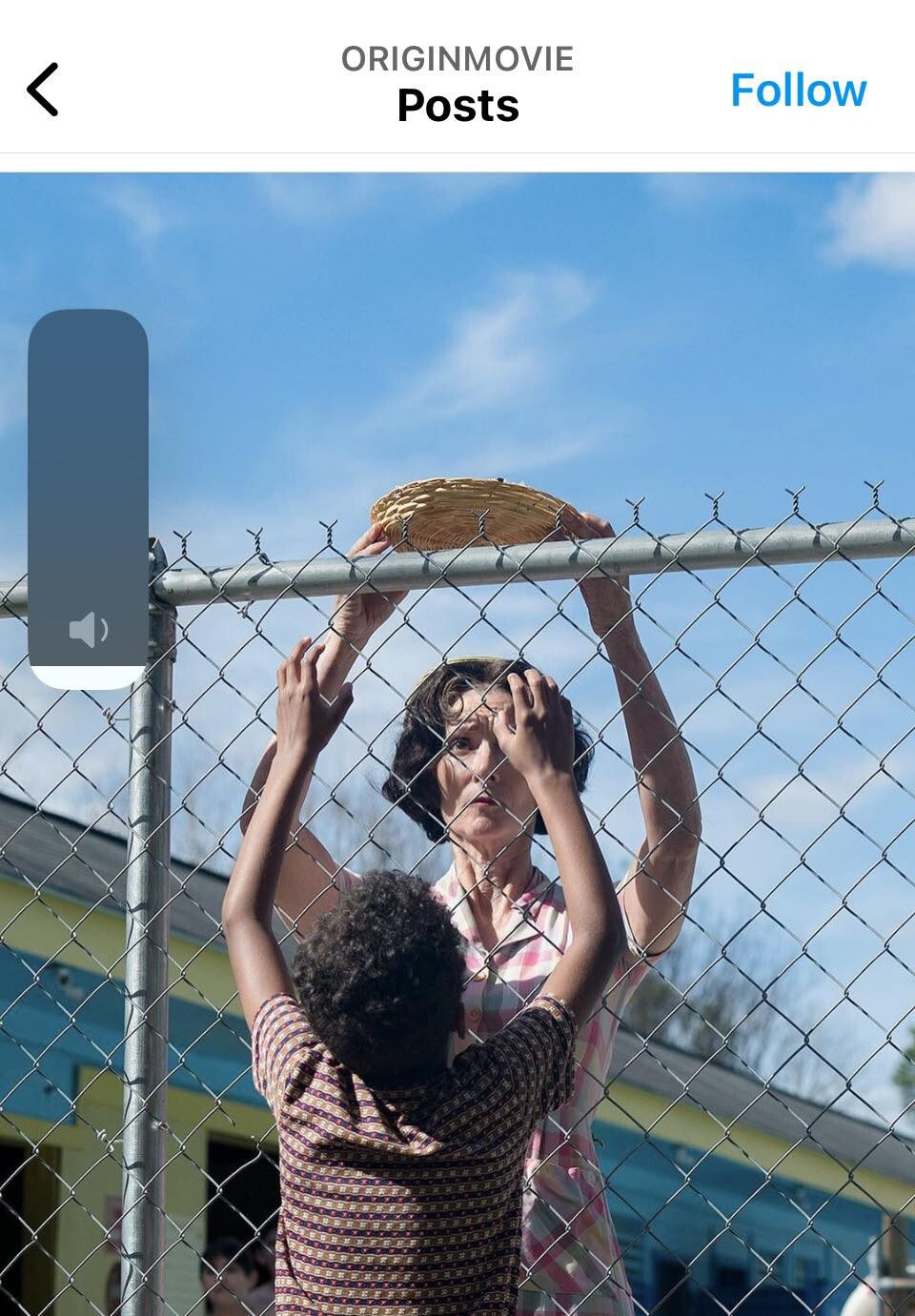
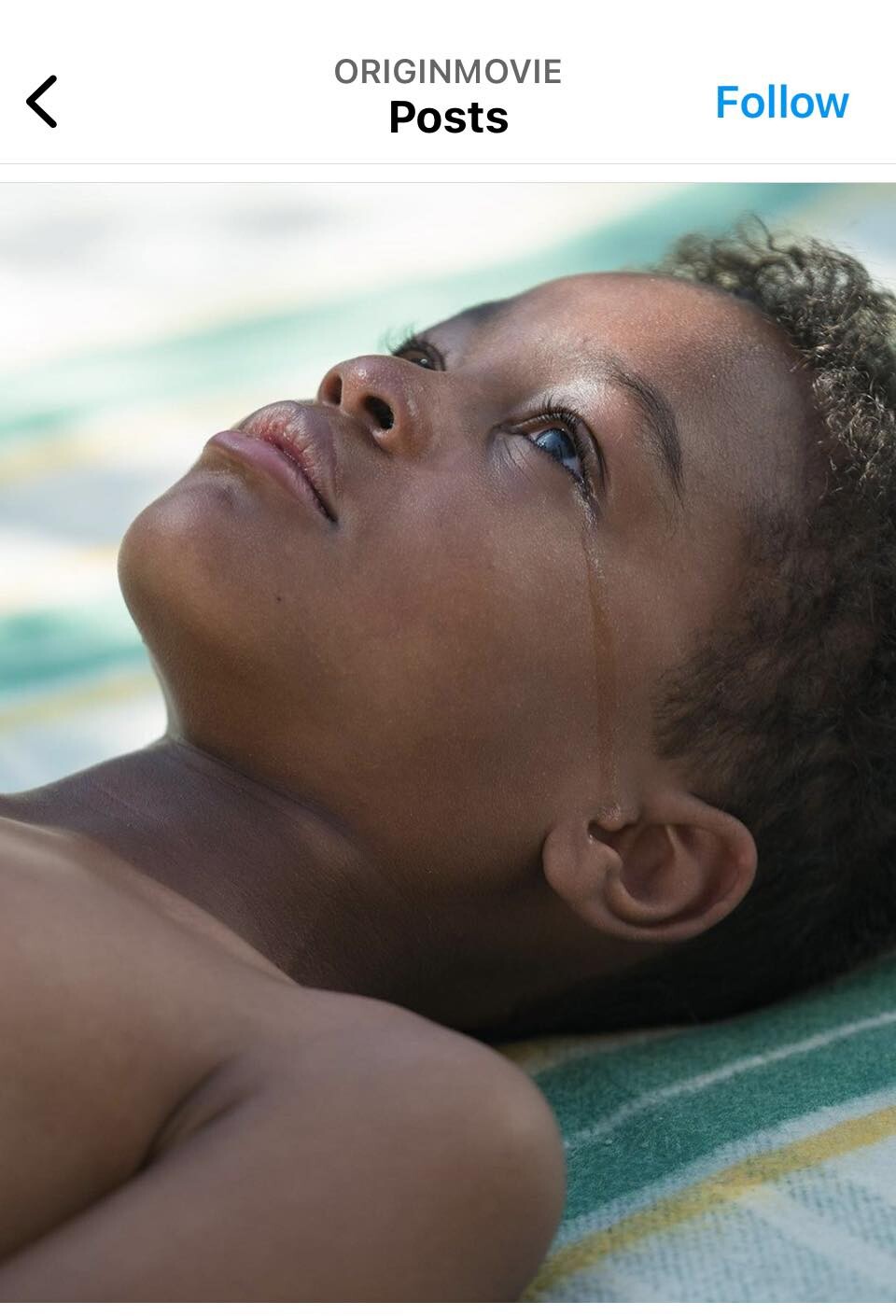
Story #5: “George McLaurin was the first black student admitted to Oklahoma University. McLaurin successfully sued OU for admittance in 1948 after he was denied admission to pursue a Doctor of Education degree. Incorporating Jim Crow laws that essentially made segregation legal was the Oklahoma legislature’s first act after Oklahoma became a state. OU admitted McLaurin, but he was not taught in the same setting as his white peers. He had to sit at a separate cafeteria table, had a designated desk in the library and was forced to sit at a desk outside the classroom during classes.”
He is “untouchable.”
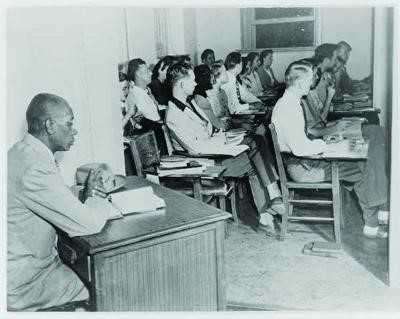
As an aside, 75 years later, in December 2023, the governor of Oklahoma signed an executive order restricting the use of state funds, property, or resources to promote DEI initiatives, including faculty positions, departments, activities, and programs “to the extent they grant preferential treatment based on one person’s particular race, color, sex, ethnicity, or national origin over another’s.” The executive order prohibits DEI education, training, loyalty oaths, and statements on job applications. It also bars institutions from mandating that a person disclose their pronouns. Oklahoma University (OU) President Joseph Harroz responded by saying that they would eliminate their DEI offices and programs.
Interpreting the executive order differently, Oklahoma State University’s President Kayse Shrum said the school will be sure to meet the new legal obligations. That being said, after an initial review of OSU’s processes and practices, Shrum said no significant changes are needed.
“OSU faculty, staff and students are guided by the Cowboy Code, which invigorates us with a “passion to do what’s right,” and united in the Cowboy Culture, which demands that “we treat every individual with dignity and respect and recognize that differences can serve to strengthen and enrich the fabric of life.” Those fundamental commitments will not change,” she said.
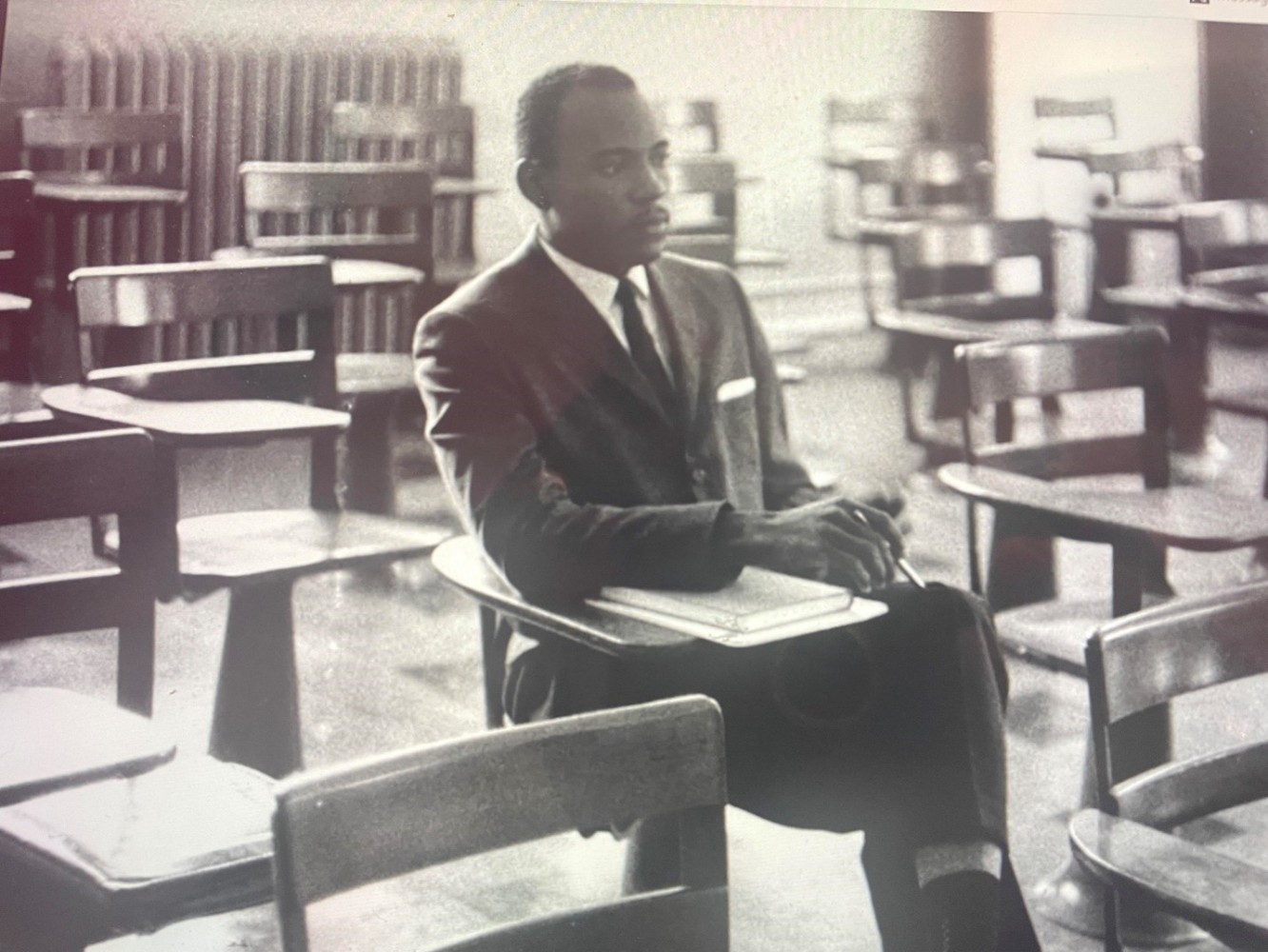
He is “untouchable.”
Story #7: “The ‘white’ water fountain is visibly more luxurious than the ‘colored’. We can therefore see straight away that the image is simply evidence of controversial inequality. We can see on the man’s face him glancing almost longingly at the ‘white’ fountain. Discrimination in America took a turn for the worse after the Civil War and segregation was becoming increasingly apparent. When the U.S. joined WWII the southern society was fully segregated. Everything from schools, restaurants, hotels, train cars, waiting rooms, elevators, public bathrooms, colleges, hospitals, cemetery, swimming pools, drinking fountains, prisons, and even churches had separate areas for whites and blacks.”
Their waterfall was “untouchable.”
https://www.history.com/topics/early-20th-century-us/jim-crow-laws
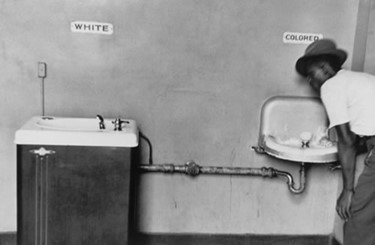
A photograph taken by Elliot Erwitt in 1950 in North Carolina, USA,
Story #8:
Ruby Bridges share her memory of integrating school: “Federal marshals came to the house and knocked on the door. I remember seeing four very tall white men and not really understanding why they were there. They explained to my parents that “we were sent by the president of the United States, and we are here to escort you and your daughter to school today.I remember getting into the car with them and driving to the new school that was very close to my house. It was actually my neighborhood school, but because it was a white school, I wasn’t able to attend before this very day. Upon arriving in front of the school, I saw mobs and mobs of people out in front of the school, and they were screaming and shouting, throwing things, waving their hands. Being 6 years old, I know that what spared me was the innocence of a child, because seeing that mob outside and living in New Orleans, I was accustomed to Mardi Gras and actually thought it was Mardi Gras that day.
… Once I got inside of the school, parents – white parents – refused to allow their children to go to school with me. So they rushed in and they took out their children. Over 500 kids walked out of school that day, and it was because I was there.”
Ruby “spent her first day in the principal’s office due to the chaos created as angry white parents pulled their children from school. Ardent segregationists withdrew their children permanently. Barbara Henry, a white Boston native, was the only teacher willing to accept Ruby, and all year, she was a class of one. Ruby ate lunch alone and sometimes played with her teacher at recess, but she never missed a day of school that year. The Bridges family suffered for their courage: Abon [her father] lost his job, and grocery stores refused to sell to Lucille [her mother]. Her share-cropping grandparents were evicted from the farm where they had lived for a quarter-century.”
Black six-year old Ruby Bridges, was “untouchable.”
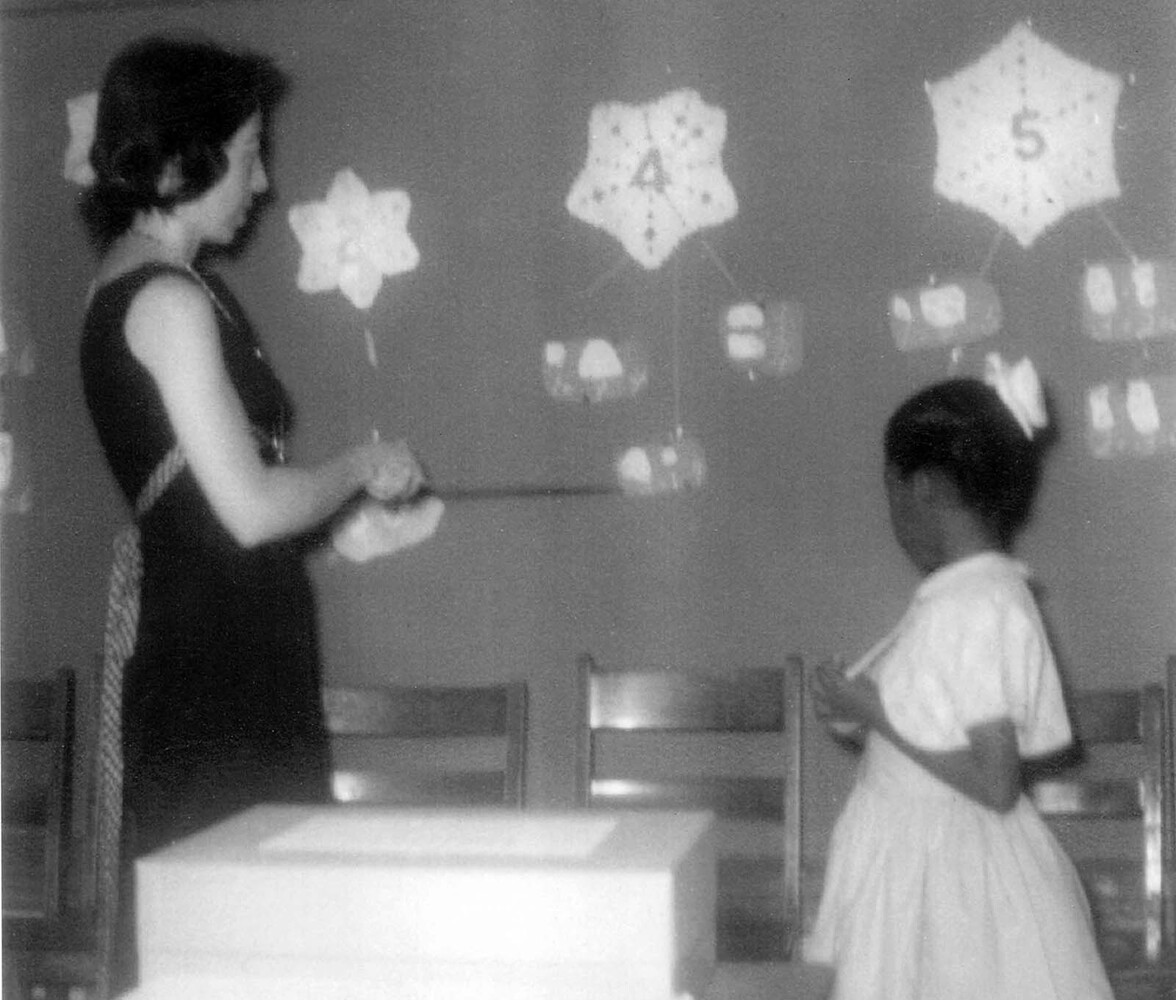
https://rarehistoricalphotos.com/ruby-bridges-1960/
After all the effort to get an education, Ruby Bridges didn’t go to college, as her parents could not afford it, especially after they divorced.
Story #9: I see connections with the concept of untouchables in the experiences of the Palestinians and their treatment and restrictions. As with many areas of history, I feel profoundly ignorant. I think that many concerned about humanity have been trying to frantically educate ourselves about the Middle East. That area, too, was subject to partition.
1)Fragmentation into domains of control: At the heart of the system is keeping Palestinian separated from each other into distinct territorial, legal and administrative domains
2) Dispossession of land and property: Decades of discriminatory land and property seizures, home demolitions and forced evictions
3)Segregation and control:A system of laws and policies that keep Palestinians restricted to enclaves, subject to several measures that control their lives, and segregated from Jewish Israelis
4) Deprivation of economic & social rights:The deliberate impoverishment of Palestinians keeping them at great disadvantage in comparison to Jewish Israelis
Story #10: The experiences of Black women in the academy can feel like we are untouchable and disposable, as Joy Gaston Gayles’ title suggests: “ Does Anyone See Us? Disposability of Black Women Faculty in the Academy, August 17 2022,
Through patient conversations with my hosts in India and subsequent research, I’ve learned more about the caste system. I am sharing it here in case others want to know more. I certainly was appalled at the level of my own ignorance about India and the fact that I had never taken a class in all of my education about India, and had no clear knowledge about the “partition.” Learn more about the partition at:
“The caste system, a defining feature of Hinduism, is perhaps the world’s longest surviving social hierarchy. Traditionally, Hindu society has been segmented into a complex ranking of various castes, based on notions of ritual purity. Brahmins were placed at the apex, followed by other ‘Forward’ castes and the so-called ‘Other Backward’ castes (OBCs), while the so-called ‘Scheduled’ castes (SCs) constituted the bottom of the hierarchy. Occupational specialization and endogamy have been the key characteristics of the system, with Brahmins constituting the traditional intelligentsia, Forward castes (FCs) largely engaged in administration, law enforcement and trade, OBCs constituting the primary component of the peasantry, and SCs confined to menial and low-end artisanal occupations. Norms of ritual purity and pollution, which underlie the system, include the idea that individuals belonging to other castes would be ‘polluted’ by coming into physical contact with those born into the SC category. This leads to the practice of ‘untouchability’: the avoidance of physical contact by the former with the latter. Historically, this entailed residential segregation, stringent restrictions on social interaction between SCs and other castes including a complete taboo on inter-marriage, avoidance by other castes of food handled by SCs, non-access of SCs to public spaces and communal facilities such as roads, village wells, schools, temples, and entry barriers against SCs in most professions.”
The lowest caste were the “untouchables,” the Dalits, who were often considered to be outside of the caste system. There have been important voices for the Dalits, including Bhimrao Ambedkar, a man born to the bottom of India’s caste system, born an untouchable in the central provinces in 1913. He helped to draft a new Indian constitution. My hosts shared with me that he was essential in advocating for specific rights in the constitution for Dalits, as he believed that without legal protection and constitutional rights, the Dalits would not voluntarily receive the rights they deserved. He embraced the term Dalits, meaning “broken people” – which, due to the caste system, they were.”
“Despite the fact that untouchability was officially banned when India adopted its constitution in 1950, discrimination against Dalits remained so pervasive that in 1989 the government passed legislation known as The Prevention of Atrocities Act. The act specifically made it illegal to parade people naked through the streets, force them to eat feces, take away their land, foul their water, interfere with their right to vote, and burn down their homes. Since then, the violence has escalated, largely as a result of the emergence of a grassroots human rights movement among Dalits to demand their rights and resist the dictates of untouchability.”
The constitution in India provides important rights and protections to certain castes and tribes. I learned that India has a form of affirmative action, called reservations, in which particular castes have protected access.
“Affirmative action measures include reservation of seats in educational institutions and government jobs for these groups. One of the main benefits provided to SC, ST, and OBC is reservation of seats in educational institutions and government jobs. This means that a certain percentage of seats in schools and colleges and a certain number of government jobs are set aside. The purpose of this measure is to ensure that these groups have equal opportunities to access education and employment, and to help address the historical disadvantage faced by these groups. In addition to reservation of seats and jobs, these groups are also eligible for various other benefits and schemes aimed at improving their socio-economic status. These may include financial assistance for education, subsidies for starting businesses, and access to credit at lower interest rates. STs living in remote and tribal areas may also be eligible for special schemes and benefits aimed at improving their access to basic amenities such as healthcare, education, and clean drinking water.”
“As we go about our daily lives, caste is the wordless usher in a darkened theatre, the flashlight cast down the aisles, guiding us to our assigned seats for a performance. The hierarchy of caste is not about feelings or morality. It is about power: which groups have it and which do not. It is about resources: which caste is seen as worthy of them, and which are not; who gets to acquire and control them, and who does not. It is about respect, authority and assumptions of competence: who is accorded these, and who is not.”
“I remember when Mrs. King and I were in India, we journeyed down one afternoon to the southernmost part of India, the state of Kerala, the city of Trivandrum. That afternoon I was to speak in one of the schools, what we would call high schools in our country, and it was a school attended by and large by students who were the children of former untouchables ….
The principal introduced me and then as he came to the conclusion of his introduction, he says, “Young people, I would like to present to you a fellow untouchable from the United States of America.” And for a moment I was a bit shocked and peeved that I would be referred to as an untouchable ….I started thinking about the fact: twenty million of my brothers and sisters were still smothering in an airtight cage of poverty in an affluent society. I started thinking about the fact: these twenty million brothers and sisters were still by and large housed in rat-infested, unendurable slums in the big cities of our nation, still attending inadequate schools faced with improper recreational facilities. And I said to myself, “Yes, I am an untouchable, and every Negro in the United States of America is an untouchable.”
From sermon at Ebenezer Baptist Church, July 4, 1965
I have been reflecting on the concepts of who is untouchable in our societies. What does it mean to be untouchable? It is not only untouchable physically, but also socially, economically, politically, spiritually, psychically, and educationally. It is all the ways that we can dehumanize humanity and make them so different that they are not human.
I cannot forget the scene involving Al Bight in the film, Origin. The reality is that his experience was not unique during that time in America. There are still children and adults having this experience in the world, the experience of being treated as less than human. Many individuals who identify as trans, as gay, as part of the LGBTQ community are often othered, and treated as untouchable. Many individuals with disabilities are othered, and treated as untouchable.
When we are able to “other,” certain segments of humanity, we can engage in brutal decisions and humiliating actions, including the murder of George Floyd. It can lead to the brutality of the victims of violence in Mississippi, Michael Corey Jenkins and Eddie Terrell Parker,
What awakens our conscience?
Who is untouchable in our society?
How do we learn who is untouchable and why?
What are the roles of schools and education system in perpetuating or disrupting ideas of untouchability?
How can we disrupt ideas and ideologies about the “untouchables”?
This is why limitations on what can be taught in schools is so profoundly disturbing. That is why the role of politics in education across the world has to be understood. That is why we have to care when access to knowledge is limited. It is why we must care about books that are banned in schools.
It has become ever more clear to me that it is naïve to think that education exists outside of political control and influence. This is not only the case in the United States and the increasing impact of laws eliminating DEI offices, the very offices that could deal with the increasing conflict related to Middle East, but also in India, where the political government is dismantling efforts considered liberal, including sexual harassment policies in universities, installing political appointees, harassing scholars with oppositional views, and chilling freedom of speech.
As I learned with my gracious hosts in India, there is a rise of Nazism in India. Hitler’s book is celebrated in some spheres; they are doing the salute, and they are promoting ideologies of superiority. It is not only about anti-semitism. It is about legitimizing inhumanity based on identity. They are also organizations that are similar to the Klan intimidating communities and visiting college campuses dressed in white outfits.
But, what is most important is not giving up hope. It is so important for us to know that there are lights in the midst of darkness and not only must we find and celebrate those lights, we must also be light ourselves.
I remain inspired by Dr. King’s words:
“On February 22, Mrs. King and I journeyed down to a city in India called Trivandrum. Then we went from Trivandrum down to a point known as Cape Comorin. This is where the mass of India ends and the vast rolling waters of the ocean have their beginning. It is one of the most beautiful parts of all the world. Three great bodies of water meet together in all of their majestic splendor: the Bay of Bengal, the Arabian Sea, and the Indian Ocean.
I remember how we went out there and looked at the big old rocks, a sight that was truly incredible, out into the waters, out into the ocean. Seated on a huge rock that slightly protruded into the ocean, we were enthralled by the vastness of the ocean and its terrifying immensities. We looked at the waves of those great bodies of water as they unfolded in almost rhythmic suspension. As the waves crashed against the base of the rock on which we were seated, an oceanic music brought sweetness to the ear. To the west we saw the magnificent sun, a red cosmic ball of fire, appear to sink into the very ocean itself. Just as it was almost lost from sight, Coretta touched me and said, “Look, Martin, isn’t that beautiful!” I looked around and saw the moon, another ball of scintillating beauty. As the sun appeared to be sinking into the ocean, the moon appeared to be rising from the ocean. When the sun finally passed completely beyond sight, darkness engulfed the earth, but in the east the radiant light of the rising moon shone supreme. This was, as I said, one of the most beautiful parts in all the world, and that happened to be one of those days when the moon was full. This is one of the few points in all the world where you can see the setting of the sun and the rising of the moon simultaneously.
I looked at that and something came to my mind … We have experiences when the light of day vanishes, leaving us in some dark and desolate midnight moments when our highest hopes are turned into shambles of despair or when we are victims of some tragic injustice and some terrible exploitation. During such moments our spirits are almost overcome by gloom and despair, and we feel that there is no light anywhere. But ever and again, we look toward the east and discover that there is another light which shines even in the darkness, and “the spear of frustration” is transformed “into a shaft of light.”
Mrs. Barbara Henley, Ruby Bridges’ teacher, was a shaft of life. She taught Ruby an important life lesson: “I think the lesson that I learned is that you can’t look at a person and judge them. That you have to allow yourself an opportunity to really get to know them, no matter what they look like.”
The work of DEI, diversity, equity, and inclusion, allows us to understand our human differences across identities, but also recognize and learn ways of working towards community. In the world of DEI, no one is untouchable. This is why we need DEI practioners and scholars more than ever.
To learn more about me, and my evolution as a scholar, and my commitment to this work, pre-order my new book, Blackwildgirl: A Writer’s Journey to Take Back Her Superpower, and the companion journal, Finding your Superpower.
https://www.amazon.com/Blackwildgirl-Writers-Journey-Take-Superpower/dp/1647426324